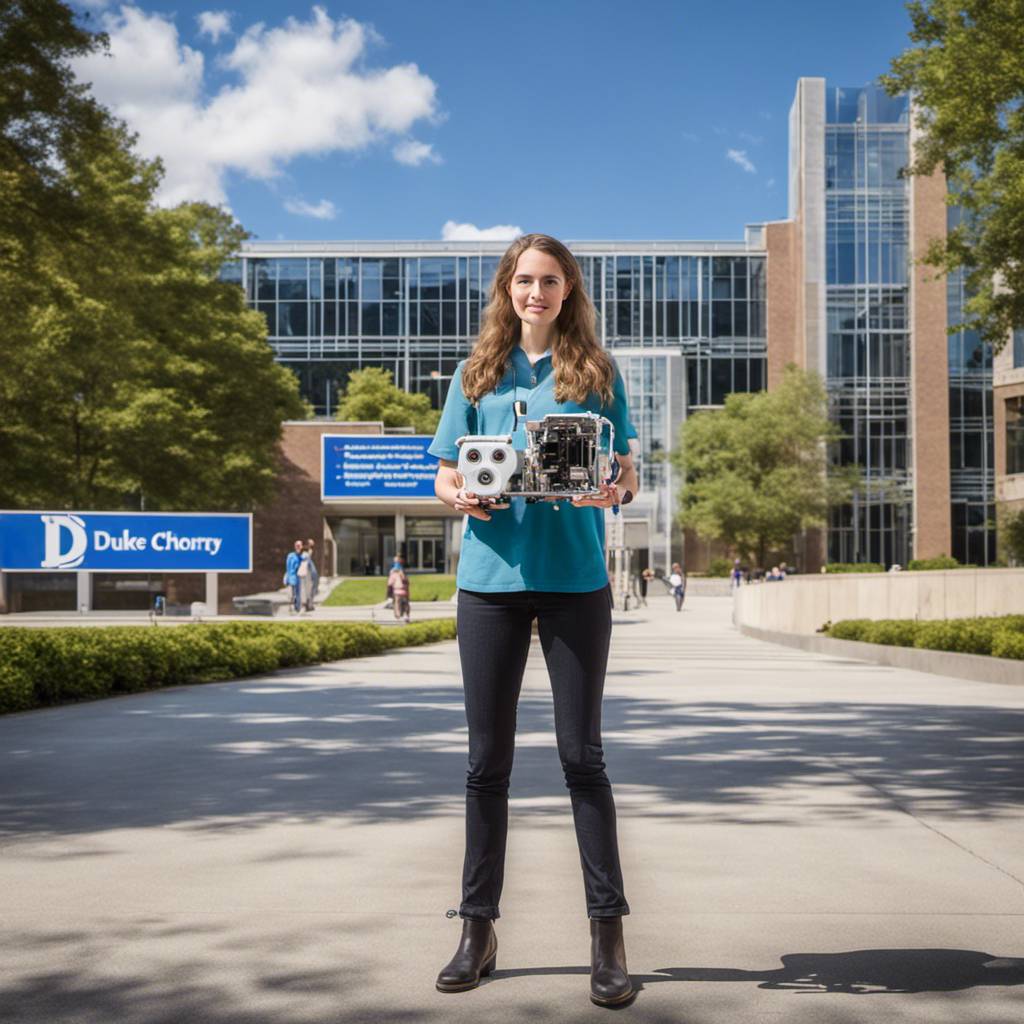The Department of Biomedical Engineering at Duke University is set to welcome a new addition to its team. Emma Chory, an expert in the field of directed evolution, will join the department starting July 1, 2023. Chory’s work revolves around the utilization of commercial automated robotic platforms, which she modifies for rapid engineering of targeted proteins and biomolecules. Her aim is to explore how the concept of evolution can be harnessed to produce compounds with therapeutic value and to investigate mutations that lead to diseases such as cancer.
Directed evolution is Chory’s specialty. This technique emulates the natural selection process that takes place in nature, where environmental pressures force an organism to adapt and change. If these changes prove beneficial, they are passed on to the next generation, resulting in a more robust organism. In the realm of directed evolution, researchers can engineer proteins or molecules to evolve and acquire crucial characteristics, such as the capacity to inhibit cancer cell growth. This is accomplished by altering a gene’s DNA, selecting promising variants from the mutation, and replicating these variants.
As Chory explains, “Directed evolution is essentially replicating the natural process of mutation, selection, and replication in a laboratory setting. This enables us to speed up evolution and enhance biomolecules for specific characteristics or functions. By doing this on a large scale, we can gather a wealth of data on why certain molecules may gain or lose function. We can then delve into the conditions and mutations that led to these changes.”
However, achieving this scale in an academic lab poses challenges. It’s impossible for lab staff and students to flawlessly grow, mutate, select, and replicate target genes across over 400 different cell lines every 12 hours. Chory found a solution in robotic platforms typically used by pharmaceutical companies. These commercially available tools, roughly the size of a lab bench, are often used for tasks like pipetting or mass production of therapeutics like COVID-19 vaccines.
Chory and her team devised their own software, Pyhamilton, enabling these machines to be used for directed evolution experiments. As a post-doctoral fellow at MIT, she further developed this work by creating the platform PRANCE (phage-and robotics-assisted near-continuous evolution). The implementation of PRANCE has allowed Chory to run her experiments on a large scale, providing insights into how population diversity, environmental changes timing, and random mutations can influence bacterial proteins’ evolution.
At Duke University, Chory plans to continue this work with a focus on cancer research. “As we’ll be dealing with large amounts of data about protein evolution, we’ll be able to answer fundamental science questions previously unexplored. This will enhance our understanding of disease mechanisms,” she explains. “We’ll also be able to use this process to help proteins and biomolecules evolve in a way that could make them ideally suited to combat different types of cancer. There are many opportunities.”
Chory brings a unique background to Duke University. She holds a PhD from Stanford, where her work covered cancer biology, epigenetics, stem cell engineering, and robotics experience from MIT. Her appreciation for collaborative research environments is one reason why she’s excited to join Duke BME. “The chance to be part of a department closely connected with its medical school and a leading genomics center like Duke’s Center for Advanced Genomic Technologies is rare,” says Chory. “I don’t think there are many programs in the world like that, and I’m excited to initiate my own collaborations.
